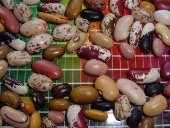




knowledge is an important part of wisdom. I am here to learn.





The choices we make dictate the life we lead...

 3
3




Paul Cereghino- Ecosystem Guild
Maritime Temperate Coniferous Rainforest - Mild Wet Winter, Dry Summer





The choices we make dictate the life we lead...




Paul Cereghino wrote:I couldn't tell you off the top what hybrids are most likely to produce a desirable offspring -- maybe someone else knows off the top of their head...






 For example the cucurbitaceae family includes many genera like melons, cucumbers and squash, which are divided into species.
For example the cucurbitaceae family includes many genera like melons, cucumbers and squash, which are divided into species.




Permaculture teacher at Patrick Whitefield Associates
Author - see my published books








Brenda
Bloom where you are planted.
http://restfultrailsfoodforestgarden.blogspot.com/








Marianne
check us out @ www.cricketscove.net




Nicole Castle wrote:Regarding the discussion on hybrid, sometimes it's labelled "F1" instead. That means the same thing as hybrid.
Nicole Castle wrote:I second the recommendation for Ashworth's "Seed to Seed." It's essential for learning to save seed.
USDA Hardiness Zone 9a
Subtropical/temperate, Average annual rainfall of 61.94", hot and humid!

|
Frankly, my dear, I don't give a damn. But if you read my tiny ad, I might change my mind.
The new permaculture playing cards kickstarter is now live!
https://www.kickstarter.com/projects/paulwheaton/garden-cards
|







